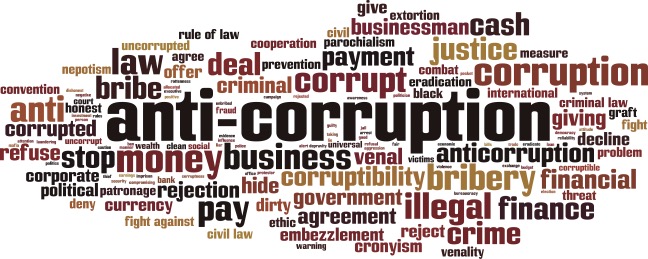Celebrating the progress and confronting the challenges of anti-corruption
December 15, 2023

A remarkable one in five people worldwide have reported having to pay a bribe for public services.
Despite progress on anti-corruption mechanisms, combating corruption remains a significant challenge, with the cost estimated at US$2.6 trillion, or five percent of global gross domestic product (GDP). A remarkable one in five people worldwide have reported having to pay a bribe to access a public service. In fact, according to Transparency International, despite concerted efforts and hard-won gains in some places, 155 countries have seen either no significant progress or worsened corruption since 2012.
Twenty years ago, member states agreed on the United Nations Convention against Corruption (UNCAC) and some 190 state parties have now ratified it. This week, coinciding with its 20th anniversary, the 10th Conference of the State Parties (CoSP) to the UNCAC took place in Atlanta, Georgia, hosted by the United States.
It brought together over 2,000 participants from governments and regional and international organizations, as well as representatives from civil society, youth, and the private sector to discuss progress made and challenges remaining. Special events focused on key areas of governance and anti-corruption, including safeguarding the environment and climate from corruption, preventing corruption in service delivery such as health, empowering women, youth and changemakers in anti-corruption responses, promoting the role of civil society and the private sector, and harnessing the power of digital technologies as well as data and corruption measurement to promote effective international cooperation in preventing illicit financial flows.
What has UNCAC achieved?
UNCAC has grown in significance since its adoption in 2003. Indeed, its near-universal ratification is a testament to the commitment made by member states to combat corruption. Successes include reforms by states to adopt stronger laws and measures against corruption in line with the UNCAC, as well as the development of a framework to offer guidance to member states on national statistics on corruption and anti-corruption.
The global advocacy and awareness raised by UNCAC and the knowledge and experience-sharing through the successive COSPs and their working groups has supported significant progress in the growth of data, evidence, surveys and methodologies on corruption and anti-corruption. The network of practitioners and academia focused on these issues has also grown.
Anti-corruption is now an integral part of global, regional and national development. The 2030 Agenda explicitly acknowledges the direct link between corruption, peace, and development. Sustainable Development Goal 16 - peaceful, just and inclusive societies - includes specific targets on reducing corruption and bribery, building effective, accountable and transparent institutions and ensuring public access to information.
In terms of UNCAC implementation, there have been two review cycles, which focused on compliance with the UNCAC’s mandatory provisions. The process has significantly contributed in terms of knowledge exchange and the identification of technical assistance needs.
However the majority of states still face challenges. Indeed, as illustrated by the worrying data on the state of corruption today, there is a huge gap between existing laws, policies and institutions and their effectiveness and enforcement, with persistent impunity a major barrier in many countries, exacerbated by the governance challenges of dealing with transnational phenomena.
Where should we go from here?
UNDP’s governance and anti-corruption policy and programme support in more than 100 countries has indicated three key areas to advance the anti-corruption agenda.
First, states should consider moving from a focus on compliance to a stronger emphasis on tracking progress on effectiveness, making the UNCAC review process more productive and impactful.
Second, there is a need to measure and track the integration of anti-corruption measures and their impact in promoting efficiency and equity in vital sectors of development such as environmental and natural resource protection, service delivery, taxation and public finances, construction, and infrastructure. This integration includes harnessing the vast potential of new technologies to promote the integrity of public institutions and public services.
Third, there is a need to continue strengthening anti-corruption networks of governments, civil societies, businesses and academia to promote a “whole-of-society” approach to combating corruption, including strengthening business integrity.
As part of the UN family, UNDP celebrates the achievements of 20 years of UNCAC. We commit ourselves to further strengthening the convention’s effectiveness in the years to come, by working together with key donor and programme partners to support anti-corruption efforts at global, regional, and country levels.

 Locations
Locations
